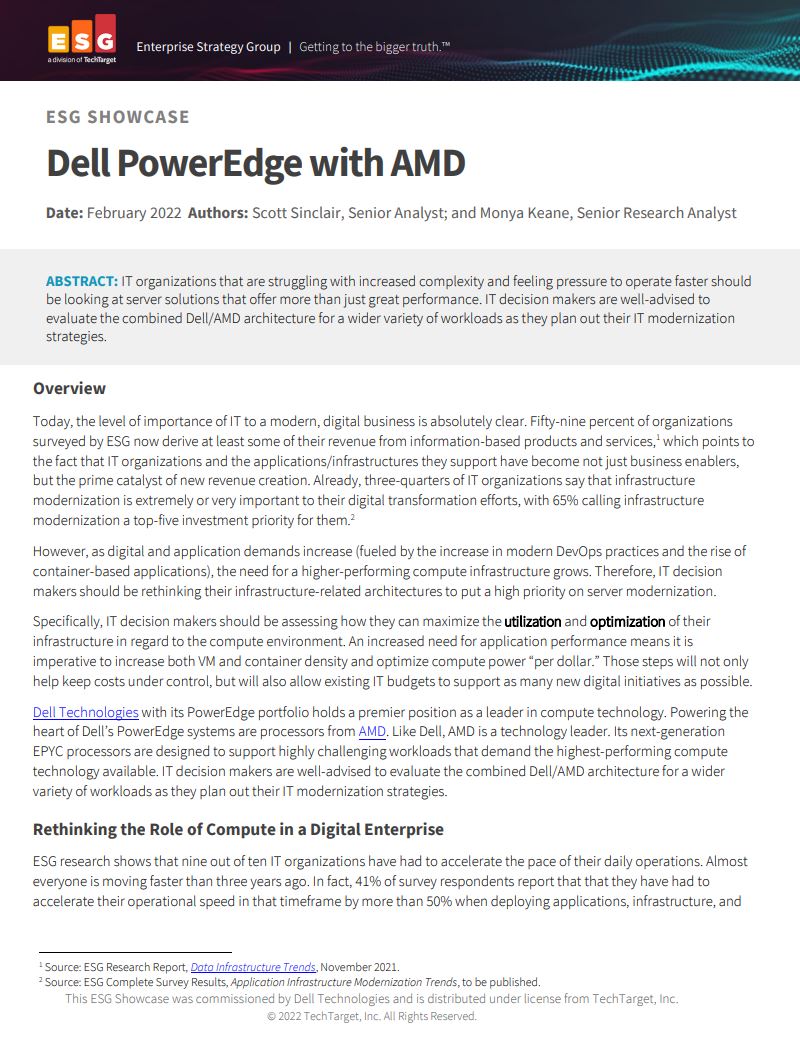China’s internet giant Baidu unveils first quantum computer
The company also revealed a “plug and play” computing platform letting customers create their own quantum algorithms


China’s Baidu revealed today its first superconducting quantum computer that fully integrates hardware, software, and applications.
The supercomputer, named Qian Shi, offers a quantum computing service to the public with 10 quantum bits (qubits) of power. Baidu added that it has also recently completed the design of a 36-qubit superconducting quantum chip with couplers.
This is the company’s first industry-level superconducting quantum computer, which incorporates its hardware platform with its software stack. On top of this infrastructure are a number of quantum applications, including quantum algorithms used to design new materials for novel lithium batteries or simulate protein folding.
RELATED RESOURCE

Dell PowerEdge with AMD
IT applications and infrastructure are the prime catalyst for new revenue creation
The internet company has also developed Liang Xi, what it claims to be the world’s first all-platform quantum hardware-software integration that offers quantum services through private deployment, cloud services, and hardware access.
The platform is able to plug into Qian Shi and other third-party quantum computers, including a 10-qubit superconducting quantum device and a trapped ion quantum device developed by the Chinese Academy of Sciences. Users can visit these quantum computational resources via mobile app, PC, and cloud.
Together, the two systems allow customers to create their own quantum-powered algorithms at a fraction of the cost typically associated, Baidu claims.
"With Qian Shi and Liang Xi, users can create quantum algorithms and use quantum computing power without developing their own quantum hardware, control systems, or programming languages," said Runyao Duan, director of the Institute for Quantum Computing at Baidu Research.
Get the ITPro daily newsletter
Sign up today and you will receive a free copy of our Future Focus 2025 report - the leading guidance on AI, cybersecurity and other IT challenges as per 700+ senior executives
"Baidu's innovations make it possible to access quantum computing anytime and anywhere, even via smartphone. Baidu's platform is also instantly compatible with a wide range of quantum chips, meaning 'plug-and-play' access is now a reality."
Baidu is aiming to integrate quantum technologies into its core business, with its Institute for Quantum Computing at Baidu Research aiming to become a world-leading in quantum AI research. The institute was established in 2018 and is looking to build full-stack quantum software and hardware products, create quantum infrastructure, and develop an industrial quantum network.
This comes after Fujitsu and the Riken research institute announced earlier this week they are set to offer quantum computing capabilities to companies operating in Japan.
From April 2023, the Japanese company is set to become the country’s first domestic company to commercialise quantum computing, in a sector that has so far been dominated by companies like Google and IBM.
Zach Marzouk is a former ITPro, CloudPro, and ChannelPro staff writer, covering topics like security, privacy, worker rights, and startups, primarily in the Asia Pacific and the US regions. Zach joined ITPro in 2017 where he was introduced to the world of B2B technology as a junior staff writer, before he returned to Argentina in 2018, working in communications and as a copywriter. In 2021, he made his way back to ITPro as a staff writer during the pandemic, before joining the world of freelance in 2022.
-
 Bigger salaries, more burnout: Is the CISO role in crisis?
Bigger salaries, more burnout: Is the CISO role in crisis?In-depth CISOs are more stressed than ever before – but why is this and what can be done?
By Kate O'Flaherty Published
-
 Cheap cyber crime kits can be bought on the dark web for less than $25
Cheap cyber crime kits can be bought on the dark web for less than $25News Research from NordVPN shows phishing kits are now widely available on the dark web and via messaging apps like Telegram, and are often selling for less than $25.
By Emma Woollacott Published
-
 How to empower employees to accelerate emissions reduction
How to empower employees to accelerate emissions reductionin depth With ICT accounting for as much as 3% of global carbon emissions, the same as aviation, the industry needs to increase emissions reduction
By Fleur Doidge Published
-
 Worldwide IT spending to grow 4.3% in 2023, with no significant AI impact
Worldwide IT spending to grow 4.3% in 2023, with no significant AI impactNews Spending patterns have changed as companies take an inward focus
By Rory Bathgate Published
-
 Report: Female tech workers disproportionately affected by industry layoffs
Report: Female tech workers disproportionately affected by industry layoffsNews Layoffs continue to strike companies throughout the tech industry, with data showing females in both the UK and US are bearing the brunt of them more so than males
By Ross Kelly Published
-
 How can small businesses cope with inflation?
How can small businesses cope with inflation?Tutorial With high inflation increasing the cost of doing business, how can small businesses weather the storm?
By Sandra Vogel Published
-
 How to deal with inflation while undergoing digital transformation
How to deal with inflation while undergoing digital transformationIn-depth How can organizations stave off inflation while attempting to grow by digitally transforming their businesses?
By Sandra Vogel Published
-
 How businesses can use technology to fight inflation
How businesses can use technology to fight inflationTUTORIAL While technology can’t provide all the answers to fight rising inflation, it can help ease the pain on businesses in the long term
By Sandra Vogel Published
-
 Boomi snaps up former MuleSoft executive as APJ channel lead
Boomi snaps up former MuleSoft executive as APJ channel leadNews Global software veteran Jim Fisher will work to expand the company’s channel operations across the region
By Daniel Todd Published
-
 Embattled WANdisco to cut 30% of workforce amid fraud scandal
Embattled WANdisco to cut 30% of workforce amid fraud scandalNews The layoffs follow the shock resignation of the company’s CEO and CFO in early April
By Ross Kelly Published